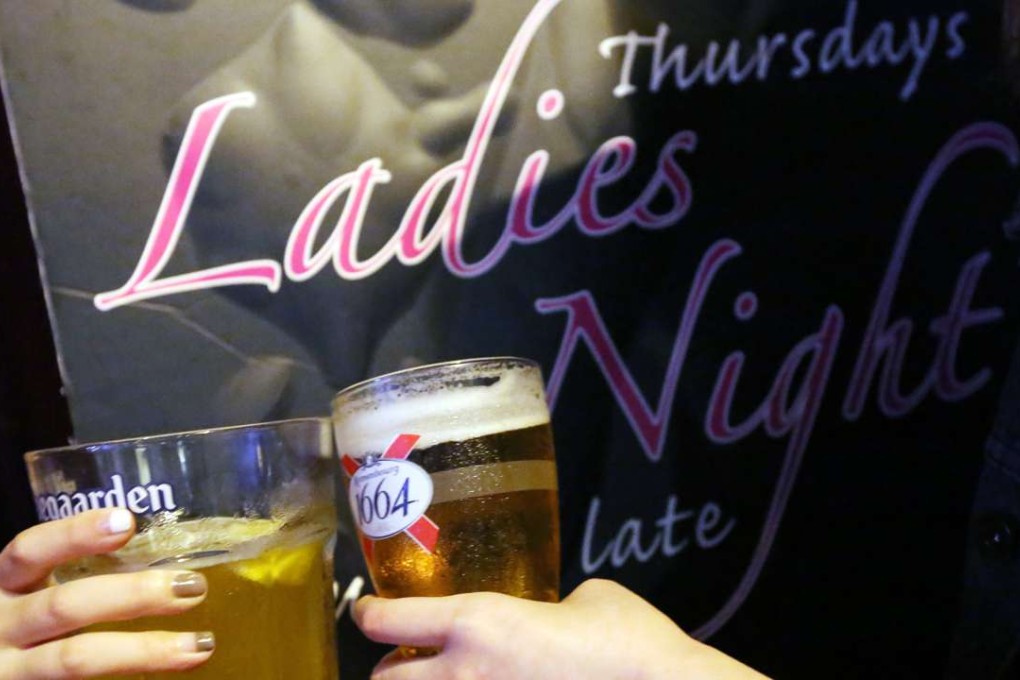Ladies’ nights: a woman’s right to cheap drinks or reflection of deep-rooted discrimination and commodification of women
‘Ladies’ night’ ruling triggers questions regarding the boundaries of business promotion and issues of gender-based discrimination in the city

When Canadian exchange student Wendy Tsui first came to Hong Kong, she was told that there was one attraction she couldn’t miss: ladies’ night.
Since the city hosted its first ladies’ night in 1994 - a promotional event where women pay less than men for drinks or entry charges - it’s become an iconic fixture of Hong Kong nightlife. But the practise is now under fire following a recent court ruling that such events were discriminatory, leading several bars to halt their ladies’ nights in response.
“It makes sense that people think it’s unfair ... but it’s a bit extreme,” said Tsui, 21, sipping from a plastic cup while out at Lan Kwai Fong on Thursday, the traditional night of the week for ladies’ night. “It’s a tradition, there are ladies’ nights in other places. It’s a tourist attraction.”
Stop wasting time on this trivial issue and start tackling real inequality
Rooted in controversy, the first ladies’ night in Hong Kong was hosted by Westworld, a club in Wan Chai that has since closed, as a way to draw customers into the lacklustre weekday club scene.
